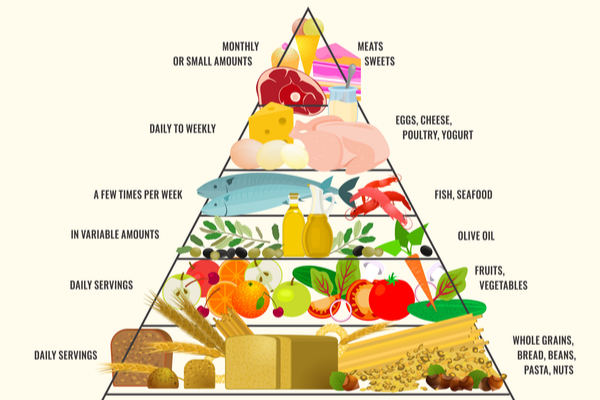For the fifth year in a row, the Mediterranean diet was first across the finish line in the annual race for best diet, according to ratings announced Tuesday by U.S. News & World Report.
Coming in a close second, in a tie: The DASH diet, which stands for dietary approaches to stop hypertension and emphasizes reducing salt intake; and the Flexitarian diet, which encourages being a vegetarian most of the time — but is flexible enough to allow a burger once in a while.
All three of these diets reduce or eliminate processed foods, and stress packing your plate with fruits, vegetables, beans, lentils, whole grains, nuts and seeds.
“I think it’s important to note that the top three diets — Mediterranean, DASH and flexitarian — all offer variety, flexibility and few, if any, rules,” said Gretel Schueller, managing editor of health for U.S. News & World Report, who puts out an annual ranking of diets, in an email.
“All the diets that perform well are safe, sensible and backed by sound science. The diet winners also all provide adequate calories with a focus on vegetables, fruits and whole grains; a modest amount of lean protein, dairy; and an occasional treat,” Schueller added.
A panel of 27 experts examined 40 diets and ranked them on several categories: How easy is the diet to follow; how likely is a person to lose significant weight, both in the short and long term; how effective the diet is in preventing cardiovascular disease or diabetes; and the diet’s nutritional completeness. “Generally speaking, the top diets are driven by what you can eat — not what you can’t eat. And right now — during these stressful times of the pandemic — that’s especially helpful for people,” Schueller said. “We want food we can enjoy. And we want food that will maintain our health, maybe even boost our immunity. The top-ranked diets offer this.”
In addition to its top spot as best overall diet, the Mediterranean style of eating also captured the blue ribbon in the following categories: easiest diets to follow; best diets for healthy eating; best diets for diabetes and best plant-based diets. Numerous studies have found the Mediterranean diet can reduce the risk for diabetes, high cholesterol, dementia, memory loss, depression and breast cancer. The diet, which is more of an eating style than a restricted diet, has also been linked to stronger bones, a healthier heart and longer life.
The diet features simple, plant-based cooking, with the majority of each meal focused on fruits and vegetables, whole grains, beans and seeds, with a few nuts and a heavy emphasis on extra-virgin olive oil. Fats other than olive oil, such as butter, are consumed rarely, if at all, and sugar and refined foods are reserved for special occasions. Red meat is used sparingly, usually only to flavor a dish. Eating healthy omega 3 oil-packed fish is encouraged, while eggs, dairy and poultry are eaten in much smaller portions than in the traditional Western diet. Social interactions during meals and exercise are basic cornerstones of the Mediterranean style of eating. Lifestyle changes that are part of the diet include eating with friends and family, socializing over meals, mindfully eating favorite foods, as well as mindful movement and exercise.
Want to make the Mediterranean diet one of your goals this year? Get started by cooking one meal each week based on beans, whole grains and vegetables, using herbs and spices to add punch. When one night a week is a breeze, add two, and build your nonmeat meals from there.
Grains that have changed little over the centuries, known as “ancient grains,” are also a key feature of the Mediterranean diet. Quinoa, amaranth, millet, farro, spelt, Kamut (a wheat grain said to be discovered in an Egyptian tomb) and teff (an Ethiopian grain about the size of a poppy seed) are some examples of ancient grains. When you do eat meat, have small amounts. For a main course, that means no more than 3 ounces of chicken or lean meat. Better yet: Use small pieces of chicken or slices of lean meat to flavor a veggie-based meal, such as a stir fry.
As for dessert, change your mindset. Mediterranean cultures typically close out meals with fruit that’s in season. If you tire of eating raw fresh fruit, get creative. Poach pears in pomegranate juice with a bit of honey, then reduce the sauce and serve over Greek yogurt. Grill pineapple or other fruits and drizzle with honey. Make a sorbet out of fruit, including avocado (it’s really a fruit). Stuff a fig or date with goat cheese and sprinkle on a few nuts. Create a brown rice apple crisp or even a whole-wheat fruit tart.
—
Photo Credit: Double Brain / Shutterstock.com
Photo Credit: Double Brain / Shutterstock.com
